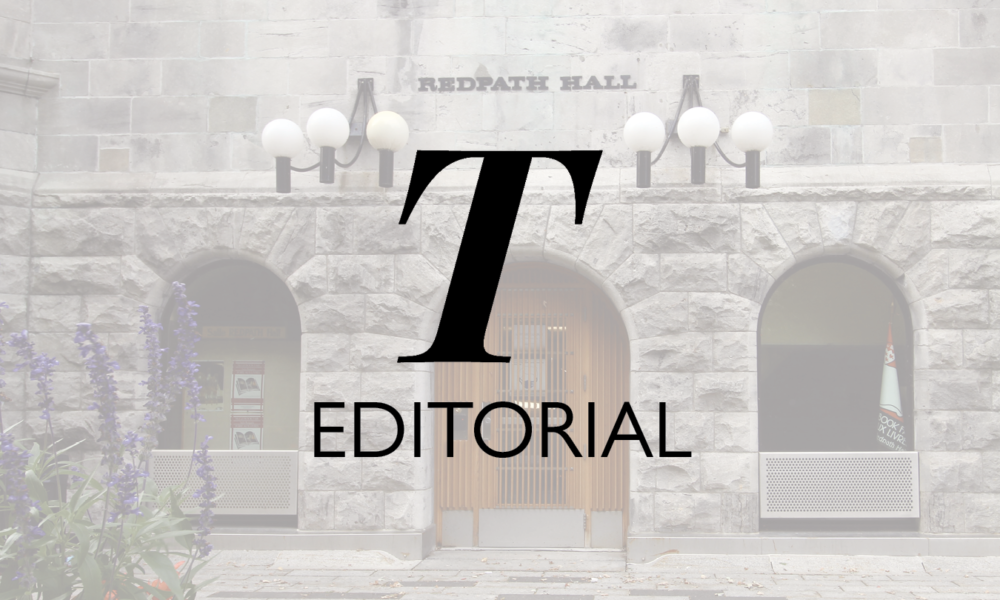On Oct. 18, the Students’ Society of McGill University (SSMU) hosted a series of events entitled “Support Uyghur Rights” to raise awareness about the Uyghur genocide and to encourage students to take action. The event highlighted McGill’s involvement in the Uyghur genocide through an examination of the university’s unconscionable endowment fund. Currently, McGill holds multi-million dollar investments in several corporations that profit directly from the Uyghur genocide, contributing to a culture of complicity that is typical of a historically colonial and profit-driven institution. The university must divest, provide resources for the McGill community to stay informed on the atrocities committed in East Turkestan, and support student activist efforts.
The Chinese government continues to commit human rights violations and crimes against humanity in East Turkestan, constituting the largest mass incarceration campaign of ethnic and religious minorities since the Holocaust. Twelve million Uyghurs live in East Turkestan, or the Xinjiang Uyghur Autonomous Region, and along with other Turkic peoples native to the region, they have been fighting for independence for almost a century. Since 2017, more than one million people have been detained, and in 2020, researchers documented the existence of 201 reeducation camps and 179 detention centres in East Turkestan. In addition to mass surveillance and indoctrination, Uyghurs and other Turkic peoples have been subjected to torture, brutal and inhumane living conditions, and forced labour. Research has found that over 20 per cent of all cotton in the global clothing market has been tainted by forced Uyghur labour. Countless children have been separated from their families and incarcerated women have been subjected to systematic rape and forced sterilization.
In February 2021, the House of Commons—despite Trudeau and his cabinet abstaining—unanimously adopted a motion recognizing the Chinese government’s genocide against Uyghur, Kazakh, and Kyrgyz ethnic and religious minorities in Xinjiang. Two legislative proposals are presently being considered in Ottawa. Motion M-62, which is set to be debated in parliament on Oct. 26, calls for the Canadian government to expedite the entry of 10,000 Uyghur and Turkic refugees that are in need of protection. Bill S-204 would ban all goods imported from East Turkestan whether or not they have been proven to use forced labour.
These urgent pieces of legislation should spur McGill to evaluate its problematic endowment portfolio and to encourage active advocacy and relief efforts. Earlier this year, an investigation by The McGill Tribune revealed the university’s endowment fund allocates $15 million into corporations tied up in the Uyghur genocide. McGill’s portfolio includes companies such as Tencent (WeChat’s parent company) and Alibaba, that surveil Uyghurs, as well as Puma, Nordstrom, and Kohl’s, companies that allegedly use enslaved Uyghur labour in their supply chains. The least the McGill administration can and should do is divest from companies that are profiting from the genocide in East Turkestan.
While divesting is an easy yet necessary first step, McGill must also provide educational resources on the genocide and ways to support the Uyghur rights movement. The administration has been silent on the Uyghur genocide, once again choosing indifference for its staff and students who are racialized minorities. So long as it prides itself on being an international institution, McGill must encourage its students to advocate against international human rights abuses, and in turn, students mustto reach out to their Member of Parliament. Furthermore, the university should expand their Students and Scholars at Risk Fund and subsidize the World University Services Canada’s Student Refugee Program at McGill that sponsorship of young refugees.
We must contextualize our demands for divestment and sanctions in terms of global cooperation, decolonization, and workers’ rights movements. We must not overlook the implications of outsourcing on workers’ rights globally. Many of today’s global supply chains resemble imperialist systems that exist to feed the growing appetite of Western economies and exploit low-level workers in the Global South. We must understand that these globalist structures of exploitation are the same ones that contribute to an international attitude of indifference towards forced Uyghur labour. McGill should recognize its role in this global neoliberal and imperialist framework, and take after Pparliament by urgently addressing what is likely the largest ethnic cleansing campaign of the century.
Motion M-62 is being debated in parliament on Oct. 26. You can sign up to attend here.










So, what is SSMU’s position on the PRC’s vast Crimes Against Humanity in its organ stealing murders since 1995, now running at 25,000 to 30,000 of unconvicted unsentenced victims in official hospitals to supply approximately 100,000 human organ transplant “procedures” per year, ref “Bloody Harvest” David Kilgour & David Matas 2006/07, “The Slaughter” Ethan Gutmann, 2014, “Bloody Harvest/The Slaughter: Update” Matas & Gutmann, 2016/17, “Harvested alive -10 years investigation of Force Organ Harvesting in china” Feb ’17 youtube.com/watch?v=Od3Q6O7HMy8, “Medical Genocide” facebook.com/watch/?v=371172450993531, China Tribunal Final Judgement
http://chinatribunal.com/china-tribunal-final-judgement…/
, and many more accredited testimonies, please?